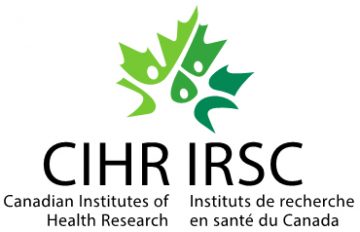 Several Centre for Blood Research (CBR) projects received funding from the Canadian Institutes of Health Research (CIHR), as part of the CIHR Spring 2022 Project Grants competition.
Several Centre for Blood Research (CBR) projects received funding from the Canadian Institutes of Health Research (CIHR), as part of the CIHR Spring 2022 Project Grants competition.
Dr. Hongshen Ma and Dr. Aly Karsan received funding, drawing in more than $2.8 million.
In total, UBC researchers are leading 47 projects awarded a total of $38.3 million. 46 of these projects were awarded Project Grants of $38.2 million, and one UBC-led project was awarded a priority announcement grant of $0.1 million. Congratulations!
Behaviour-based cell separation to interrogate host cell heterogeneity in CAR-T cell therapies
Principal Investigator: Hongshen Ma, Mechanical Engineering
Co-Investigator(s): Megan Levings
Amount: $864,450 over 5 years
Chimeric antigen receptor cell therapy is a new form of cancer therapy that modifies a patient’s own immune cells in order to give them the ability to eliminate cancer cells. These therapies have been shown to be highly effective against certain cancers. A major challenge in the continued development these therapies is that most of the modified immune cells do not participate in the killing of tumor cells as intended. This variability increases the potential for side-effects, as well as higher dosage requirements that results in greater cost. In order to determine why only some of the modified immune cells are functional, we are developing a technology to separate cells based on behaviour observed under a microscope. Using this technology, we will separate cells that function efficiently in tumor cell killing in order to study them in isolation to determine molecular basis that drive their function. This capability will reveal potential approaches to improve the design of these therapies to improve outcomes for patients by reducing side-effects and dosage requirements.
Role of SASH1 in generation of hematopoietic stem cells
Principal Investigator: Aly Karsan, Genome Sciences Centre
Amount: $948,600 over 5 years
During the development of blood vessels in the embryo some of the blood vessel lining cells, called hemogenic endothelial cells, become blood stem cells, which then create the circulating blood system. Little is known about what signals drive some endothelial cells to become blood cells. Even less is known about how other cells in the embryo regulate this process to ensure adequate blood production over a lifetime. The programs that are activated to make blood stem cells is key to understanding how endothelial cells choose their fate. We have identified a gene called Sash1 that sends signals from different cell types to promote the endothelial cells to make blood stem cells. The purpose of this project is to take this information and understand how Sash1 generates signals from other cell types to activate hemogenic endothelial cells. Blood stem cell transplantation is critical for adults with leukemia and other cancers to be able to replenish a normal blood system after treatment with chemotherapy or radiotherapy. Recently there has been some progress in making new blood stem cells in a dish, but there is still much work to be done to create normal blood stem cells in a dish. Our research will help identify external chemicals that help to make blood stem cells from endothelial cells, which we hope will provide a new source of blood stem cells for transplantation for various kinds of blood diseases. Understanding what signals coax the endothelial cells to become blood stem cells, and what other cell types are required for this process is critical in understanding mechanisms of blood stem cell formation and improving treatments for blood and other cancers.
Clonal interactions in myeloid malignancy
Principal Investigator: Aly Karsan, Genome Sciences Centre
Co-Investigator(s): Connie Eaves, Andrew Roth
Amount: $1,025,100 over 5 years
Acute myeloid leukemia (AML) is a very aggressive cancer. The median age of AML patients is 68 years old, and only 10% of those over age 60 survive this cancer. AML is initiated and maintained in patients by leukemic stem cells (LSC). These are cells that can produce more leukemic cells in a process called self-renewal, but also produce slightly more differentiated cells, which make up the bulk of the leukemia. In order to cure AML, it is necessary to eliminate or control the LSC as well as the bulk population. Unfortunately, each individual AML patient has several different genetic kinds of leukemic cells in their cancer, and these leukemic cells can expand or diminish in numbers based on their environment in the bone marrow and other pressures, such as inflammation or therapy. Our recent findings also suggest that one type of genetic leukemic cell may help support other types of leukemic cells, and we have developed a model that allows us to examine the interactions between these different types of leukemic cells. In this proposal we plan to investigate how loss of function of a specific gene alters cell signals such that some of these signals leave the cell and allow other leukemic cells to either expand or diminish depending on the genetic type of LSC. We will perturb these signals to examine their importance in cell and animal models. We will also examine cells from AML patients and track their response to manipulation of the signals we have identified. We hope that this work will provide information on how to target these specific signals to improve treatments for AML.




